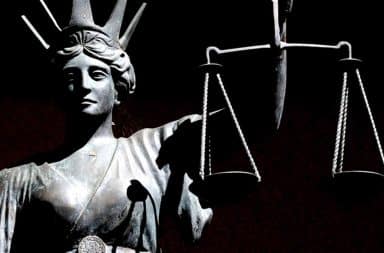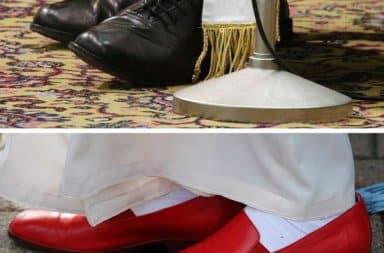Thomas Cooley writes for Forbes. He's a lying son of a bitch. I was gonna stop doing the “Translating English into English” pieces until I read what this lying son of a bitch had to say. Let's get bold, party people.
Extraordinary times require extraordinary actions. Nowhere is that more apparent than in the bold policy moves undertaken by the Federal Reserve over the past two years. The financial crisis forced the Fed to be aggressive and creative in its attempts to provide liquidity to credit markets that had frozen up. These were necessary steps, and mostly applauded.
That's how Cooley wrote his intro. Here's how it looks in English:
Fucked up situations require drastic changes. Nowhere is that more apparent than in the bullshit policy moves made by the Federal Reserve over the past two years. The financial crisis forced the Fed to convince people that banks were more than just private business and that without using tax dollars to save their punk asses, the entire world would implode. These were totally unnecessary steps and most Americans called bullshit.
But the very boldness of its actions has put the independence of the Fed at risk. Congress is now clamoring to audit the Fed, and some of the policy proposals currently under discussion at the Federal Reserve will only increase the threat to its independence.
Apparently, the American people aren't as dumb as we thought and now congress wants to audit the Federal Reserve which totally sucks for the government and the banks because it means an end to all their free meals.
Before we deconstruct these issues, let's focus on why it is important to have an independent central bank. The answer is quite obvious. An independent central bank can focus on monetary policies for the long term—that is, policies targeting low and stable inflation and a monetary climate that promotes long-term economic growth. Political cycles, alas, are considerably shorter. Without independence, the political cycle would subject the central bank to political pressures that, in turn, would impart an inflationary bias to monetary policy.
Before we deconstruct these issues, let's remember that economic policy is way too difficult for you idiots to understand. That's why you need us. We were created an entire ten years before the start of the Great Depression and we've been promoting economic collapse for our own gain ever since. Clearly, you need us.
On this view, politicians in a democratic society are short-sighted because they are driven by the need to win their next election. This is borne out by empirical evidence. A politically insulated central bank is more likely to be concerned with long-run objectives.
You see, politicians are supposed to represent the interest of the people but the Federal reserve represents the interests of the banks. And banks are more important because they are concerned with screwing you long-term, whereas politicians only screw you in the short term, see?
A variant of the argument for central bank independence is that control of monetary policy is far too important to put in the hands of politicians. As a group, they have repeatedly demonstrated the lack of political will power to make difficult economic decisions. But now they want to assert control over the Fed. The bill, HR 1207, introduced by Sen. Bernie Sanders (who brought you the “Employ Americans First Act”) and Rep. Ron Paul, would assert greater control over the Fed. As Ron Paul writes on his Web site: “Auditing the Fed is only the first step towards exposing this antiquated insider-run creature to the powerful forces of free-market competition. Once there are viable alternatives to the monopolistic fiat dollar, the Federal Reserve will have to become honest and transparent if it wants to remain in business.”
Some people say that your money is too important to be controlled by the people who you choose to represent you which is why we need to do it with no supervision whatsoever. That's how business gets done: in secret. Now the government thinks it should actually know what we're doing. They want to audit the Federal Reserve. What dinks!
Great! Obviously, monetary policy is so falling-off-a-log simple that your elected representatives can insert themselves via the demand for transparency into decisions of true complexity and subtlety. Why am I not feeling reassured?
You see, politicians don't understand how hard it is to manipulate the money supply and rip off the American people while simultaneously lying to them about how hard we're working to fix stuff. They could never handle it. Not in a million years.
To a large extent, the Fed backed itself into this problem, and it has to find its way out. In the heat of the financial crisis, the Fed created a number of additional lending facilities and took a wider variety of non-Treasury assets onto its balance sheet. The goal was to provide liquidity for the financial system.
The only reason that the American people want to audit the Fed is because they're creating so much money and spending it in ways not heretofore allowed or even conceived. Jeez. Lighten up, American people. The goal was to provide stability for the banks, not you.
At first it sterilized these transactions by selling Treasury assets, but since September 2008 it has expanded its balance sheet dramatically from roughly $900 billion to over $2 trillion, as of May 6. This has had the effect of increasing the reserves in the system that are available for lending. The current plan is to continue to expand the balance sheet with the Term Asset-Backed Securities Loan Facility (TALF), the program designed to buy securities backed by credit card debt, auto loans, student loans, small-business loans and real estate loans.
First, the Fed sold government bonds but then it had to expand the money supply beyond by a few trillion or so because the banks would have gone out of business without all the free cash but it's all cool because the Fed is gonna continue that program by using that money to buy debt from banks. In other words, the Fed sold debt to buy debt from banks all in the name of making banks richer while stealing purchasing power from the American people. Now I ask you, why would you want to audit the Fed?
This dramatic expansion of the balance sheet, together with the Fed's close involvement in the bailout of financial institutions like AIG and Merrill Lynch, have put the Fed in the spotlight. It is a problem precisely because if the Fed programs target particular asset classes, or industries or firms—which they do—then the Fed has put itself in the business of allocating credit. Their actions can also distort prices for these assets. This they should not do in general. Buying Treasury securities is completely neutral with respect to the allocation of credit. Buying securities backed by, say, auto loans, is not.
Basically, people keep wondering why the Fed plays favorites. The Fed shouldn't play favorites. But the Fed, you see, plays favorites.
In late March, perhaps to forestall Congressional intervention, the Treasury and the Fed issued a joint press release that acknowledges this problem. It says explicitly that the Federal Reserve should not allocate credit to narrowly defined sectors or classes of borrowers, and pledges the Treasury to help the Fed remove some of the private assets from its balance sheet.
In late March, because everyone was figuring out that the Fed was fucking over the taxpayer, the Treasury, in conjunction with the totally independent Federal Reserve by the way, stated explicitly that the Fed should stop doing exactly what it was doing. The Fed didn't stop though. And yet people still want to audit it? Makes no sense to me, Thomas Cooley, award winning financial guy.
The presence of these assets on the balance sheet in such quantities creates another problem for the Fed that exposes it to intervention. First, these huge unborrowed reserves make some observers nervous about inflation, even though there is no evidence of it right now. But if the Fed has to reduce the assets on its balance sheet to forestall an inflation threat it could be very disruptive to credit markets. Their complicated positions could be hard to unwind. If the assets they bought were liquid, the Fed wouldn't have been buying them in the first place. This means it may be difficult to get the cash out of the economy before it is too late.
The Fed bought a lot of shit securities that no one wants to buy and that the Fed can't sell. Clearly, monetary policy is way too complex to trust to politicians who would be too stupid to overpay for stuff no one wants to buy.
The Fed has been quietly surfacing a solution to this problem. In my view, it is ill-conceived and more likely than anything they have done to date to bring Congressional—and even public—wrath down upon them. The idea is for the Fed to issue its own debt, called “Fed Bills.” The sale of such bills would have the effect of taking reserves out of the system. Traditionally, the Fed sells Treasury securities to take reserves out of the system, but under this proposal it would be issuing its own debt as way of shrinking reserves.
The Fed has an ill-conceived and stupid idea that won't work. They definitely need to be left alone and unsupervised.
It is easy to understand why the Fed wants more tools to help it manage its massive balance sheet. The Fed began paying interest on reserves for precisely this reason. With interest on reserves, they can make it relatively more attractive for the holders of reserves to keep the money on deposit rather than lend it out. But issuing debt raises a whole additional level of complication.
It is easy to understand why the powerful want more power. But people are paying attention right now so the Fed should probably not be so blatant about screwing over the American people with new debt instruments destined to weaken purchasing power for the typical citizen.
There is an open question about whether the Federal Reserve even has the authority to issue claims other than currency. Apparently it thinks it does. But is it even remotely credible that the Fed could have the unbounded authority to borrow money and buy assets without the inconvenience of having to explain itself on Capitol Hill?
The Fed can do whatever it wants, dammit. And if the folks in Washington who think they're in charge have a problem with that, they will be eliminated in seconds by my super-cool grenade launcher that I love and sleep with every night. I'm Tom Cooley and I love grenade launchers. Some call it an unhealthy love.
Anything that threatens the independence of the Fed threatens the long-term viability of monetary policy. It is really important that the expanded role of the Fed in the current crisis not threaten that viability. An independent Fed can pursue policies that are politically unpopular yet in the public interest. We need central banking to be boring again, not something that keeps us on the edge of our seats.
Anything that threatens the independence of the Fed threatens the long-term future of banks and my banker friends. It is really important to all my banker friends that the Fed stick around and make them rich. An independent Fed can steal money without authorization in the name of the public interest. In conclusion, the Fed should tone down the bullshit a little because the American people are becoming aware who's screwing them and how.
Thomas F. Cooley, the Paganelli-Bull professor of economics and Richard R. West dean of the NYU Stern School of Business, writes a weekly column for Forbes.
Thomas F. Cooley is a lying son of a bitch who likes grenade launchers, young men and rolling around in his own feces.


